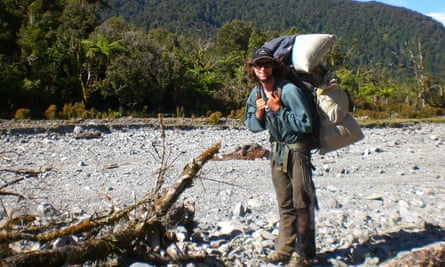An animal rights group is calling for an end to New Zealand’s “barbaric” war on possums after joeys were drowned in a bucket of water at a school fundraiser.
It said children were becoming desensitised to violence as a result of the method of killing an animal that is considered a pest in New Zealand. “It was clearly inhumane, it was appalling that children were witnessing this violence,” said Jasmijn de Boo, chief executive of animal rights group Safe.
The killings took place during a North Island school’s annual possum hunt. The possum mothers had been shot and their fur and skins sold. It is illegal to wilfully or recklessly harm any wild animals – including possums – and every measure must be taken to euthanise possums as humanely as possible, with shooting being the preferred method.
De Boo said the recent drownings were not a one-off and that many more New Zealanders were supportive rather than shocked. “We’re concerned this will spill over to New Zealand children becoming more desensitised to other sentient beings, as there is good evidence that people who hurt animals are more likely to perpetrate domestic violence or violence against humans so we need to really take this issue seriously.”
A petition has been launched to ban school possum hunts which has garnered close to 9,000 signatures and will be delivered to the education minister, Nikki Kaye, when it reaches 10,000.
Possum hunting is a widespread and popular practice across both the North and the South islands, with both amateurs and professionals alike.
Do Boo accepted it was a difficult situation given the government pledged to wipe out the species (along with stoats, ferrets and rats) by 2050. “The conservation of birds is very important, and possums play a role in that but they have been demonised as pests for a long time,” de Boo said.
“The word ‘pests’ is problematic because it insinuates they are worthless objects that can be treated without care – run over, beaten, whatever. We need to get back to the idea that all animals are sentient beings and they do not deserve a cruel death – even possums.” Safe has suggested exploring more humane alternatives, such as mass sterilisation.
The Royal New Zealand Society for the Prevention of Cruelty to Animals (SPCA) told the school the way it killed the joeys wasn’t humane, local media reported, and the school pledged to work with the SPCA in the future “to ensure that all animal welfare requirements are met”.
Australian brushtail possums were introduced to New Zealand in 1837 by settlers who hoped to establish a roaring trade in possum fur. However the animals quickly got out of control because they faced no natural predators in New Zealand.
They had a devastating impact on bird life, competing for food and habitat resources, and climbing into nests to eat eggs and fledglings. They also destroyed native trees with their strong paws, especially rata, totara, titoki, kowhai and kohekohe.

The president of Federated Farmers, Katie Milne, said the recent outcry was symptomatic of a growing cultural divide between rural and urban Kiwis, and it was “essential” to routinely cull possums to protect wildlife and stop the spread of bovine tuberculosis to farm animals.
Milne said the government culling of possums using trapping and poisoning methods had been “very effective” in recent years, and the native trees in her region on the west coast of the south island were beginning to return.
Poisoning possums is a controversial method in New Zealand because many of the most commonly used poisons – including 1080 – can take hours or even days to kill. “As a farmer I am used to being faced with life and death, and possum eradication is an essential part of farming life here and protecting the native New Zealand bush and birds,” Milne said. “But certainly the way those joeys were killed was not ideal and it could have been done in a better way. For farmers shooting is the best method.”
According to the New Zealand Fur Council possums consume 21,000 tons of New Zealand vegetation every day. About 1,500 people are employed in the possum fur and skin business, with the industry generating sales worth between $100m and $150m a year, and killing about 2m possums annually.
There have also been a number of forays into selling “possum pies” on the west coast of the south island, and possum meat is also used in pet food such as “possyyum”.
West coaster Chris Long, 25, started hunting possums when he was 12, and has paid for “one-and-a-half-trips around the the world” with his possum earnings, which on a good day can be up to NZ$700 ($510), or about 50 possums.

“I come from a place where hunting and fishing is normal, but I do feel sorry for the animals and I don’t enjoy killing them,” said Long, who says 5-10% of the trees within a 10km radius of his house have died from possum destruction, which has contributed to landslips in hilly areas.
“In Australia I’ve played with the possums and fed them and it is great fun. They are pretty cool animals. But in this country they are not quite so popular and they are a good form of income for me.”
